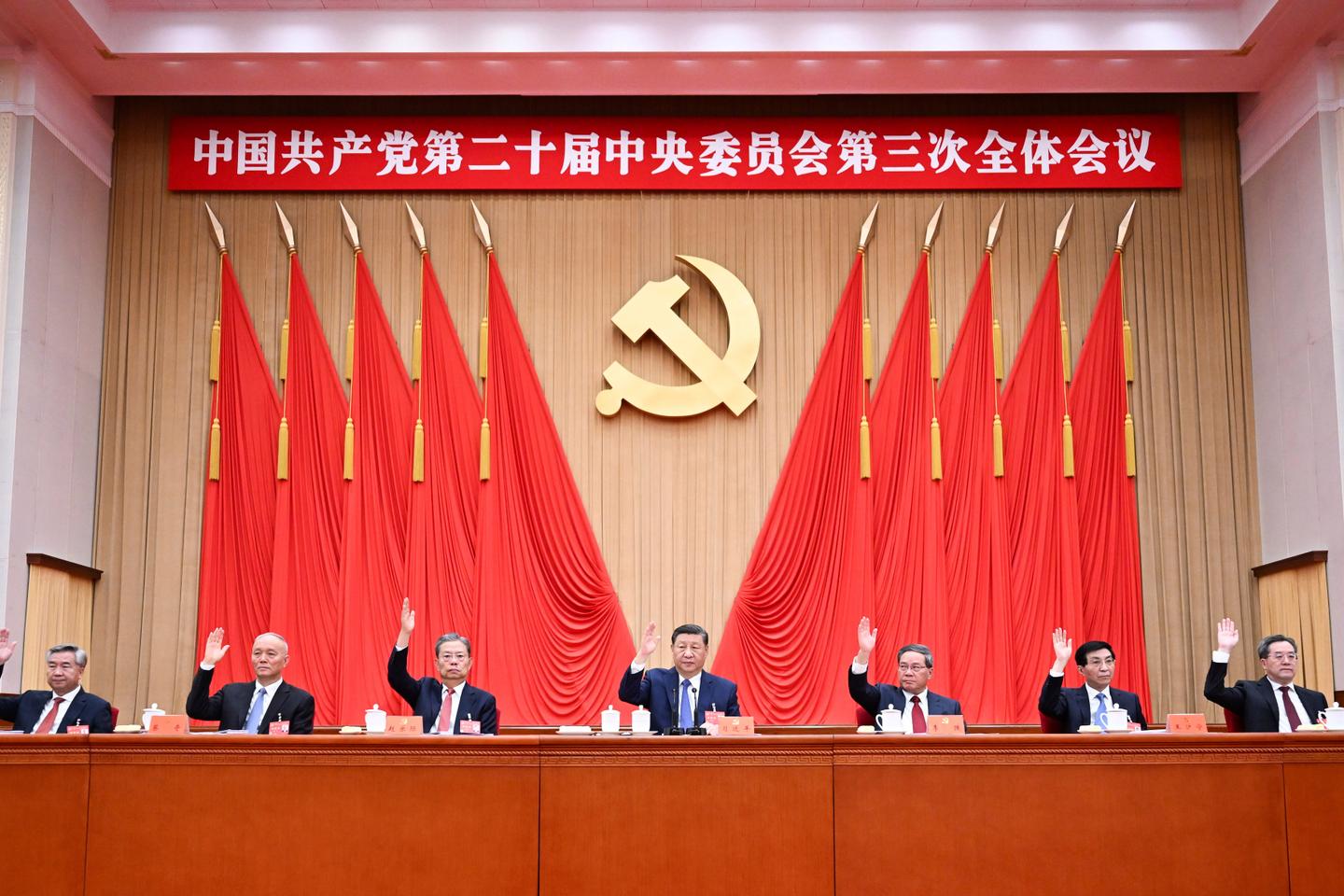


The year 2024 is marked by multiple elections, all opportunities for a significant number of countries to choose a political project. After Narendra Modi's India in the spring, it will be the United States's turn in the autumn. In China, there are no elections but an anniversary: 75 years of the People's Republic. It will be celebrated with great pomp and ceremony on October 1, and will also mark the confirmation of a "model," the one championed by President Xi Jinping. China's apparent consistency should not overshadow the way it is changing.
The outlines of the project are well known and were laid down in black and white in a document presented at the end of the third plenum, which brought together the 376 permanent and alternate members of the Chinese Communist Party's Central Committee from July 15 to 18. It was previously at a plenum in 1978 that then leader Deng Xiaoping endorsed the policy of reform and opening-up, a major turning point for both China, its economy and society, but also for the rest of the world, of which it was to become the main trading partner. The text for this latest plenum, which was only made public on Sunday, July 21, presents a completely different China.
The ruling party wants to tackle certain internal imbalances, helping rural dwellers to benefit from public services in the cities, and reforming the tax system to ensure that the provinces and cities that have carried out infrastructure projects have adequate resources. It also plans to reform the pension system.
These reforms are not insignificant. But for the rest, it's all about China closing its door and being prepared for confrontations with powers deemed hostile, in other words, the US and its allies. Its industries must be "autonomous" and strategic resources, such as the minerals essential to the energy transition, must be stockpiled. Science and technology are to be put at the service of a "coordinated and highly effective system of national security protection." Minorities' sense of national belonging is to be "completed," and religions further sinicized.
Ruptures
To set his country on this trajectory, the Chinese president had to impose a number of changes. The first was to stay in power, shattering in 2018 the two-term presidential limit seen as a safeguard since the hardships of Maoism. At the same time, a million Uyghurs were interned in indoctrination camps, an uninhibited form of repression. The country's prolonged closure to the outside world during the pandemic years also contributed to shaping a more isolated country.
China's political and commercial support for Russia since the start of its invasion of Ukraine is another fundamental change. This was not a given, as other Chinese voices considered that it was still in the country's interest to maintain acceptable relations with the West, in order to ensure its ascension and technological catch-up.
The current shift is to support industry and production, and to bet everything on the technology race. This choice creates major imbalances in the global macro-economy, to the detriment of consumer-citizens, who fear that their standard of living will no longer rise as promised by the "Chinese dream" at the start of Xi's first term. But the Chinese president believes that in politics, the end justifies the means. China's path, under his auspices, has now been set. The rest of the world has been warned.
